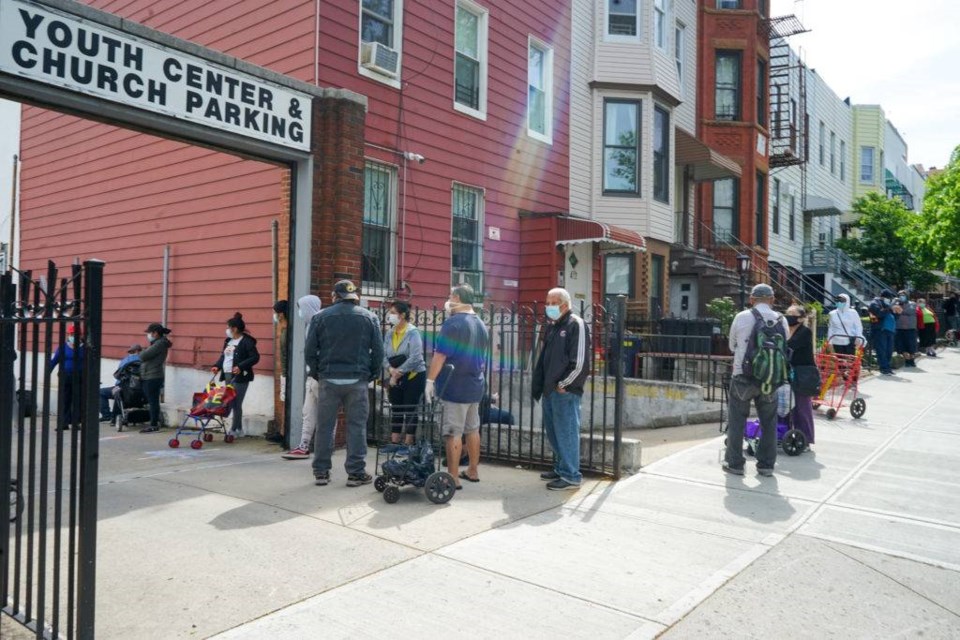After months of no federal assistance for the millions of Americans suffering the devastating effects of the coronavirus pandemic, Congress has passed a much-needed $900 billion stimulus relief bill.
The bill is now waiting on the signature of President Donald Trump, expected Tuesday.
Included in the package is $300 a week in supplemental unemployment that will last for 11-weeks and stimulus checks of $600 that will be sent to every American earning less than $75,000 a year, including children. The supplemental unemployment payment will mean Brooklyn residents already receiving state unemployment will get an extra $300 a week for the next 11-weeks, and those payments could start as early as next week, according to Treasury Secretary Steven Mnuchin.
The relief measures are long overdue, with millions of people across the country, and many in the borough, suffering joblessness, homelessness, food shortages and the inability to pay for basic necessities. And although the bill has some measures targeted at the unemployed and small businesses, experts say those measures do not go far enough.
Former Treasury Department economist Ernie Tedeschi wrote on Twitter the 11-week supplemental unemployment payments were not enough to bridge the country to the point where a vaccine would be widely distributed.
Brooklyn's Representative in Congress, Hakeem Jeffries, said 2020 had been a challenging year, but House Democrats remained optimistic. "With passage of the coronavirus emergency relief and omnibus package, the American people should know that help is on the way," he said.
"We are facing a once-in-a-century pandemic that requires a once-in-a-century congressional response. To be sure, this legislation is only a first step toward the meaningful, science-based recovery that we will commence within the first 100 days of the Biden-Harris administration."
Although the $900 billion recovery package falls far short of the initial $2.2 trillion stimulus bill, it is still one of the largest recovery efforts in American history. Around one-fifth of the $900 billion will be going towards one-off stimulus checks of $600 that will be sent to every American earning less than $75,000 a year, including children. That means a family of four can expect $2,400.
There is also an additional $300 billion set aside for Payment Protect Program loans for small businesses. Businesses who have already received a PPP loan are eligible to apply for a second.
A sticking point for Democrats was the fact the bill includes no funding for struggling state or local governments that are in dire straits financially. New York State is facing an expected $13.3 billion budget shortfall for financial year 2021 and New York City is predicted to face a $13.2 billion deficit over the next four years. The devastated restaurant industry also received nothing in the latest bill, despite the $120 billion Restaurants Act receiving bipartisan support and being passed by the House in October.
Democrats, including President-elect Joe Biden, have said state and local governments can expect aid in his first relief package as president.
Jeffries said the bill passed by Congress laid the groundwork for House Democrats to continue to working to crush the virus and deliver economic relief for everyday Americans.
"With nearly one in eight Americans going without enough to eat, millions more at risk of eviction and transportation systems struggling to stay open, we are especially proud of Speaker Pelosi's robust negotiations, which included $13 billion in SNAP and child nutrition benefits, $25 billion for rental assistance, an extension to the eviction moratorium, direct payments for everyday Americans and $14 billion for mass transit."
He said Democrats knew their work was not over until those most affected had all the assistance they needed to make it through this pandemic. "Without question, this is not the end, but the beginning."




